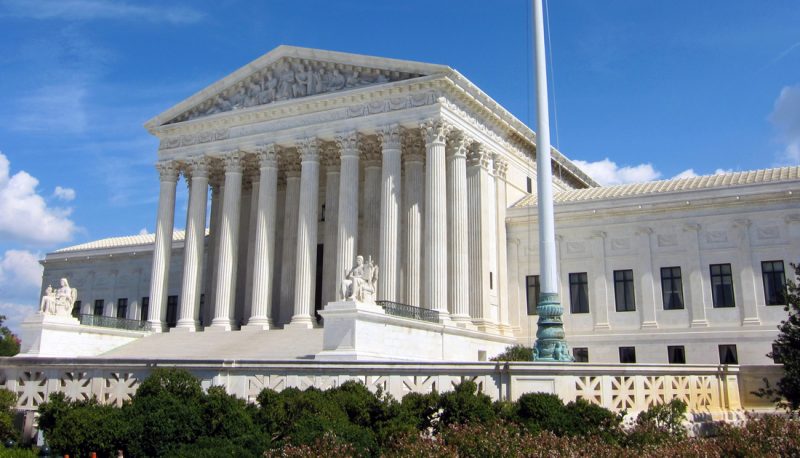On November 8, the U.S. Supreme Court is scheduled to hear oral arguments in Husted v. A. Philip Randolph Institute, a case challenging Ohio’s practice of purging voters. According to a friend-of-the-court brief filed by Asian Americans Advancing Justice | AAJC, LatinoJustice PRLDEF, the National Association of Latino Elected and Appointed Officials (NALEO) Educational Fund, People For the American Way Foundation, and sixteen other organizations, removing voters from the rolls in the aggressive way that Ohio has for years is particularly harmful to Asian Americans and Latinx people. Our introduction follows below. Click here to download a PDF copy of the full brief.
Ohio’s Supplemental Process purports to purge from its rolls those voters who have moved, but, in reality, it targets voters for failure to vote in violation of the National Voter Registration Act (NVRA). And, in doing so, the Supplemental Process disproportionately affects Asian Americans and Latinos.
Asian American and Latino registrants vote at lower rates than the rest of the U.S. population. Because of their lower voting rates, Asian Americans and Latinos are more likely to be subject to Ohio’s Supplemental Process and purged from the registration lists than any other racial group.
Asian Americans and Latinos already encounter a number of barriers to voting. For one, a large percentage of the U.S. population is comprised of Asian Americans and Latinos for whom English is not their first language and who may not be fluent in English. As a result, English-only election-related mailings create a barrier to access and comprehension which disenfranchises limited English proficient (LEP) voters, many of whom are Asian American and/or Latino. Notably, Ohio’s Confirmation Notice, which explains the steps voters must take to avoid removal pursuant to the Supplemental Process and the consequences of failing to respond, is generally provided in English only. Asian Americans and Latinos also face the brunt of other constraints that the state places on voting. Ohio’s Supplemental Process is just one of a slate of policies on registration and voting that have impeded the ability of otherwise eligible Asian Americans and Latinos to register and vote.
In light of the barriers discussed herein, once purged, it is unlikely that many Asian Americans and Latinos will re-register, return to the polls, or, even if they attempt to vote, be allowed to cast a ballot. This is exactly the disenfranchisement that Congress warned about when enacting the NVRA, especially with respect to low-income voters and those facing language barriers.
Ohio over purges registered voters because its Supplemental Process is not tailored to remove people who have moved. Indeed, the Supplemental Process has resulted in the purging of thousands of people based on Ohio’s faulty premise that these voters moved. This requires the thousands of purged people to re-register, even though their residence has not changed since they last voted. At best, the Supplemental Process is an overly-broad solution to a relatively minor problem that removes voters, particularly Asian Americans and Latinos, for not voting, a result that Congress explicitly prohibited. Accordingly, the Court should uphold the decision of the Sixth Circuit.
